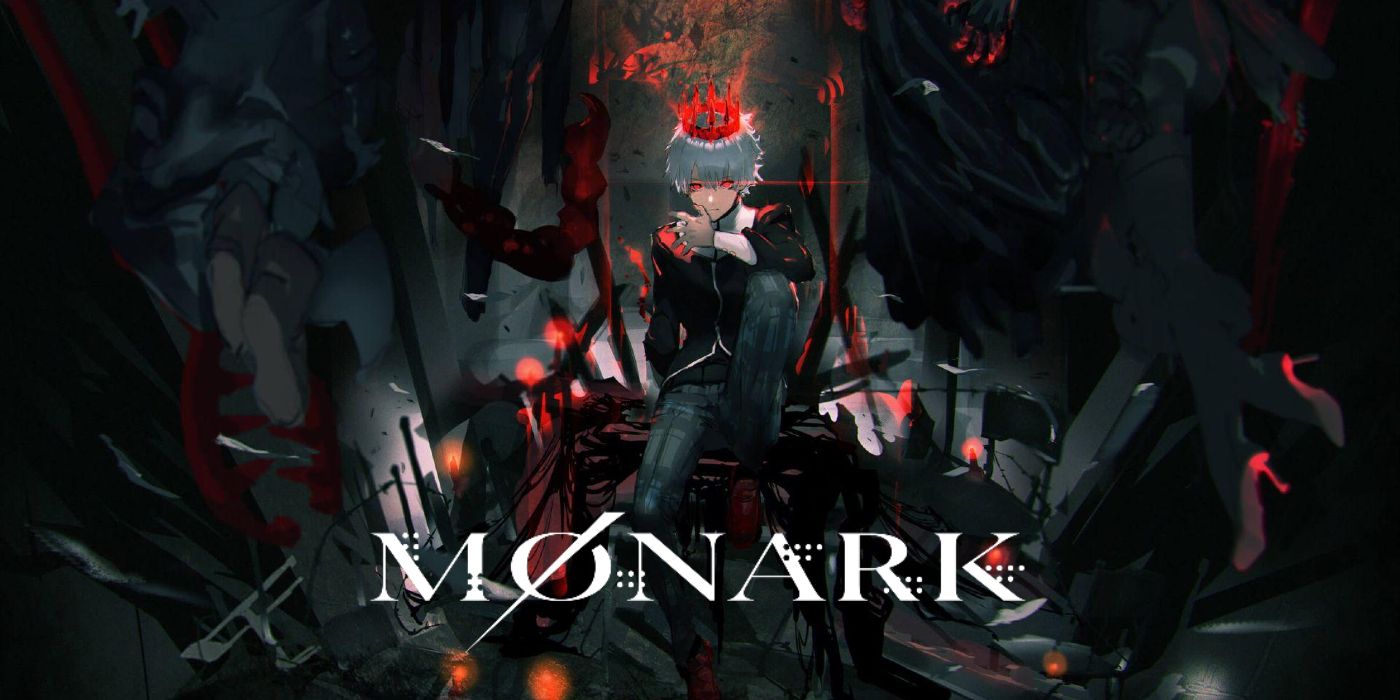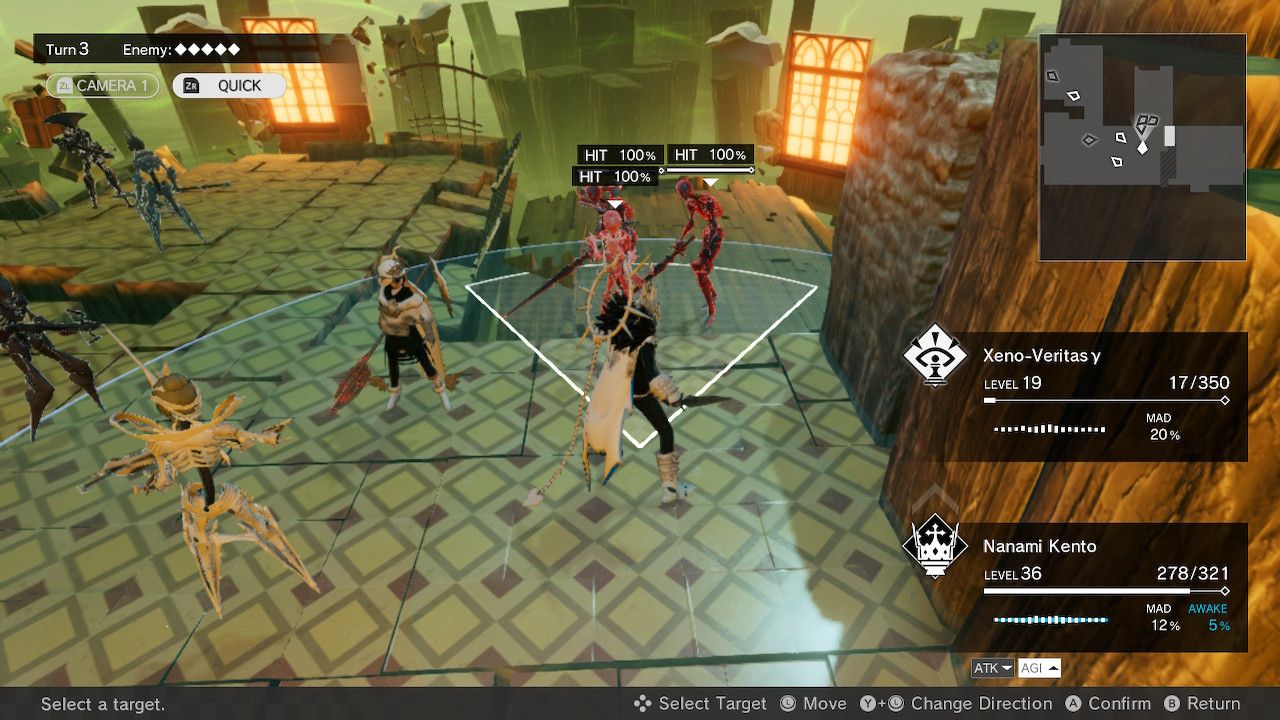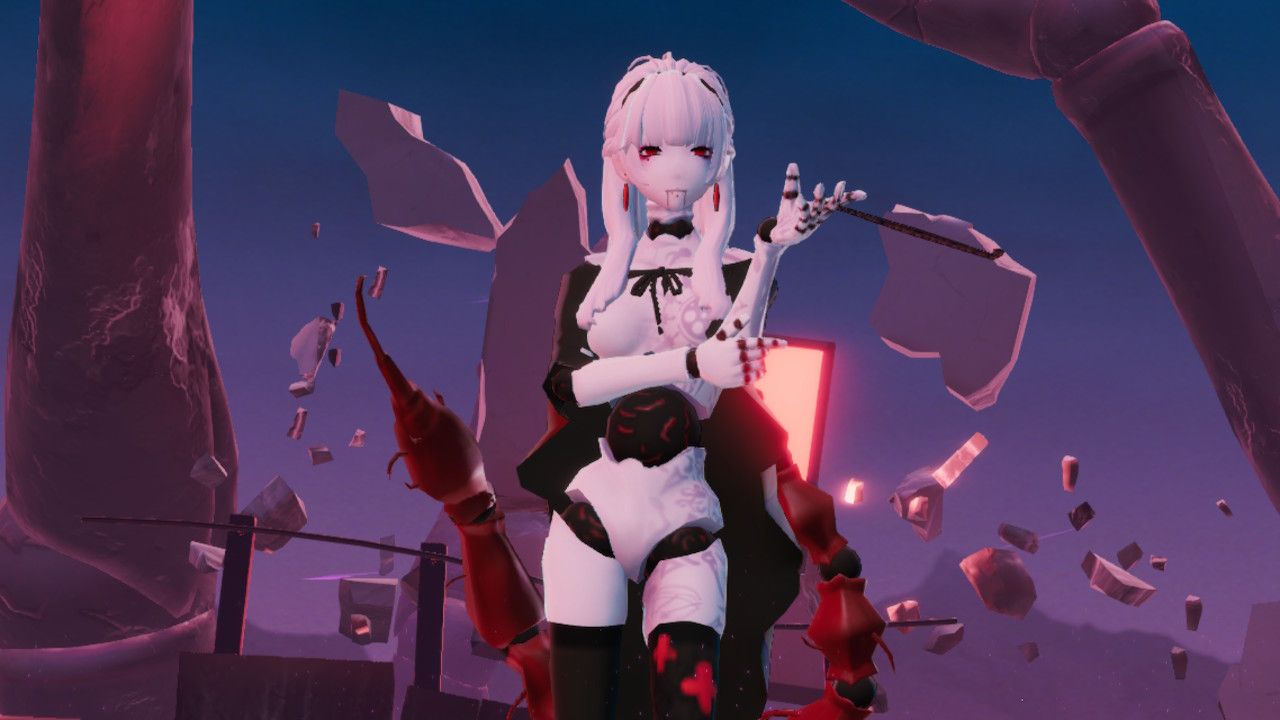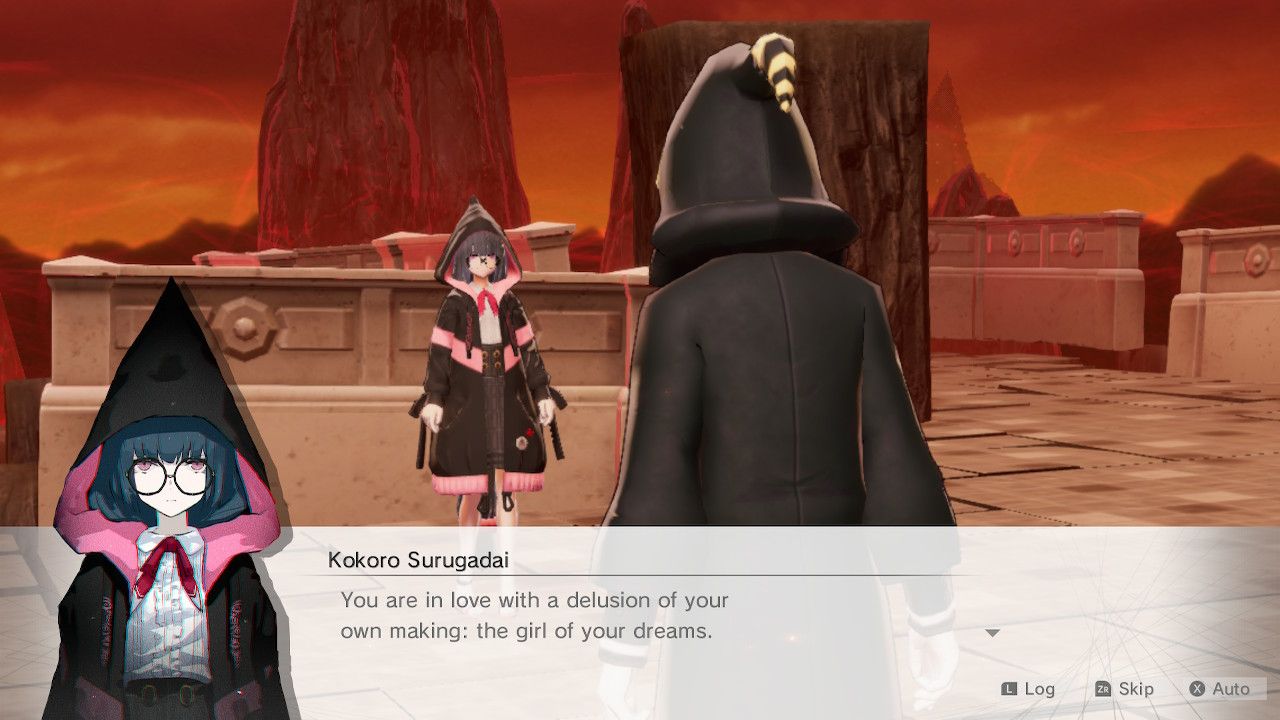Monark, from developer FURYU Corporation and publisher NIS America, Inc., does little to innovate the JRPG genre. In fact, at times, Monark strips down some systems that have gradually become commonplace in its setting, simplifying its presentation in an effort to best condense what it's discussing. Luckily, a genuinely fun and intricate combat system accompanied by some gorgeous art direction help this title stand out and merit a playthrough from fans of the JRPG space, even if there's some stumbles along the way.
Monark begins with fairly typical JRPG fare, featuring a student at a high school coming face-to-face with not only their own mortality, but a vast and intricate web of conspiracies, magic, and hidden abilities. Throughout the opening hours of Monark, one question will undoubtedly continue to pop up during play - why is any of this happening? For a story that's keen on extrapolating the hard truths of the human psyche and explaining them at length to those listening, story beats happen at a wicked pace, seemingly skipping over character development and world-building all the while.
It takes a long time before things start getting explained in a way that provides greater context to the narrative Monark is trying to spin out of its mysterious beginnings, but there is some semblance of a payoff once the protagonist assembles a team around him and begins to interact with them more meaningfully. The story still can't help itself from sampling some of the most stereotypical elements of human introspection, and there's a lot of moments that feel like they approach an unsettling or horrific statement that get cut off too soon. All the same, Monark does a decent enough job maintaining cases to solve, characters to like, and a story to invest in, at least long enough to see it through its reasonable playtime, which should range anywhere between 25-40 hours based on difficult chosen and familiarity with the genre.
The bulk of Monark takes place within the Mist, a supernatural phenomenon that slowly drives humans mad and can also transport them to the Otherworld, a location where Daemons reside. The protagonist needs to combat these Daemons using their own chosen ability as a Pactbearer, someone who has made a deal with a type of Daemon called a Monark. Exploring the Mist at the school and solving puzzles to progress is genuinely quite fun, and sometimes even a little frustrating, in a good way - Monark doesn't really hold the player's hand in terms of figuring out what's going on, so solving cases or passcodes has some real satisfaction to it.
Once the player has found themselves in the Otherworld, combat begins, and it's a much more tactical style of JRPG than simple turn-based battling. Positioning on the battle field, environmental hazards, and two separate charge meters - Awake and MAD - all need to be managed successfully. Awake is the more typical charge meter, one that can be built up through combat on its own or more rapidly by taking turns to do it, and helps unleash powerful abilities that can swing the tide of battle. MAD is much more interesting, as Authorities (basically the magic of the game) fill this meter progressively - and if a character hits 100% MAD, they enter a feral state where they attack anything on sight and can't be controlled.
Naturally, the downsides of entering a MAD state are balanced by the power of the abilities that use it, which range from simple bonus effects to field-wiping nukes, depending on character builds and team compositions. A robust ability tree accompanied by team customization helps ensure that a variety of strategies are viable, and the delicate balance of building a team that maximizes hazardous magical abilities is engrossing. Where it matters, Monark makes good on its promise.
One of the best elements of Monark is in its enemy and world aesthetics. There's a great balance between flashy anime designs and genuinely horrific representations of humanity, and it makes for a memorable environment. While the combat doesn't quite capture the beauty or appeal of the artwork and cutscenes surrounding Ideals, it's still interesting in its own right.
Unfortunately, some of the systems in Monark don't work nearly as well as its combat. The school map and traversing its overworld can be tiresome, with very little to show for it. Most of the exploration in this sense boils down to talking to ever NPC the protagonist sees. Some of them have their own pseudo-magic, called Alter Egos, strewn about the overworld. If the protagonist has stats that are high enough in the area that the Alter Ego is concerned with, they can recover it and get team-wide permanent bonuses to combat statistics. That's it, though - no real problem-solving or side quests to be seen.
Monark also allows for some minor aesthetic changes to both party characters and the minions at the protagonist's disposal, but it's a shallow offering that would've benefited from more variety. One major strength of Monark is its soundtrack, however, which is both varied and fantastic. Boss battles in particular offer up some of the most catchy tunes in recent JRPG memory, and they're the best example of the kind of flair for the dramatic Monark has in its best moments.
Overall, Monark is a perfectly functional JRPG with a great combat system, some strong aesthetic designs, and a decent story. It's held back a bit by its school setting and a lack of exposition early, and could have benefited from embracing its darker themes more readily to help establish stakes in the opening chapters. Still, what's here is a fun game with an addictive combat system, and lessons learned in Monark could make the next effort from FURYU Corporation even more appealing.
Monark releases February 22, 2022 on Nintendo Switch, PC, PlayStation 4, and PlayStation 5 in North America. A European release follows on February 25, 2022, while a New Zealand/Australian launch is set for March 4, 2022. Screen Rant was provided with a digital Switch code for the purpose of this review.




